Types of Female Breast
-
Published:08 December 2023
-
Updated:03 January 2025
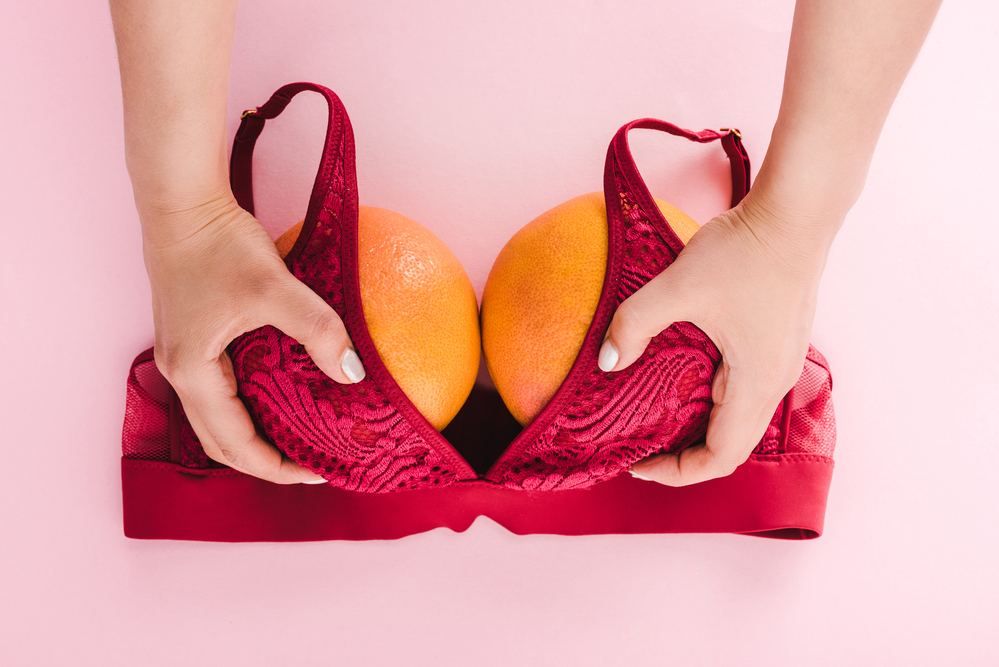
The female breast is a unique and ever-changing organ whose shape and size are determined by various factors. Mammary glands, depending on the thickness of the fatty layer and the elasticity of Cooper's ligaments, acquire their shape and size throughout a woman's life.
Dynamics of Breast Shape
Even in infants, mammary glands are flat, and during adolescence, the contours of the breast begin to emerge. In the period of sexual maturity, there is active growth, but it is only in mature age that the bust acquires its final contours.
Classification of Mammary Gland Types
- Bowl-shaped round: The width of the base is greater than the height.
- Semi-spherical: The shape resembles half an apple, with approximately equal height and width.
- Conical (pear-shaped): The height is greater than the diameter of the base.
- Elongated breast: Resembles a goat's udder, more commonly observed in African and Himalayan populations.
Types of Female Breast: Description and Photos
Archetypal Breast
Round, full, with a slight point at the nipple. This breast type is considered the "standard" and is widely used as a model by most bra manufacturers
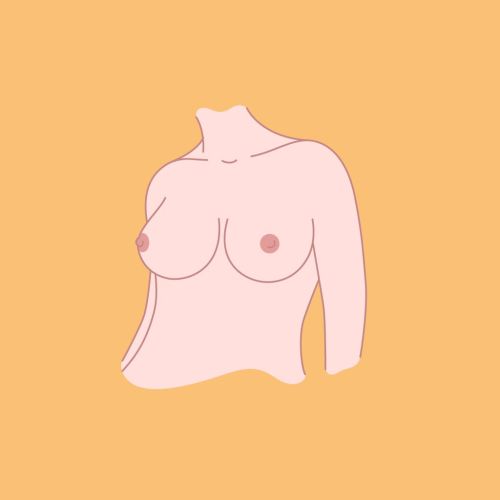
Asymmetrical Breast
Differs in size, ranging from minor to pronounced asymmetry, sometimes reaching a difference of one cup size.
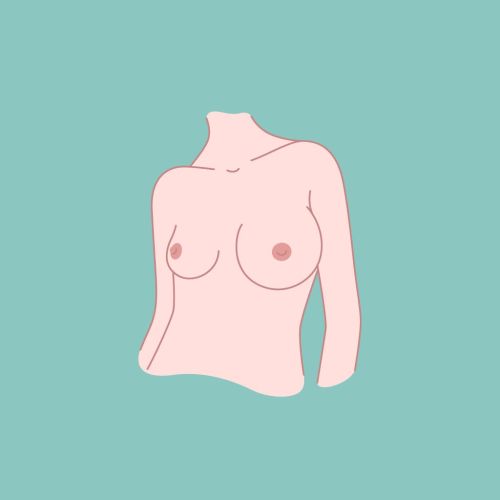
Sports Breast
Broad, more muscular with less tissue volume.
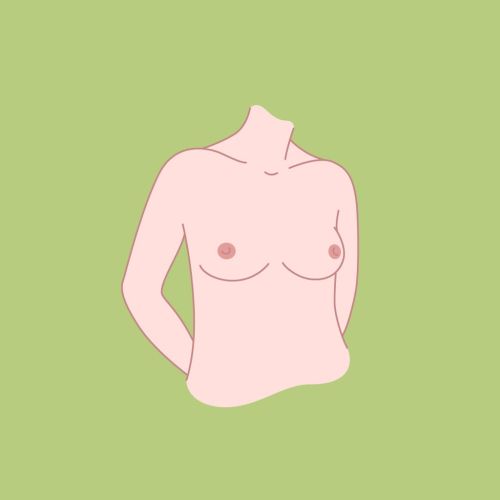
Bell Shape(Conical Breast)
Narrow at the top, fuller at the bottom, often found in women with larger cup sizes.
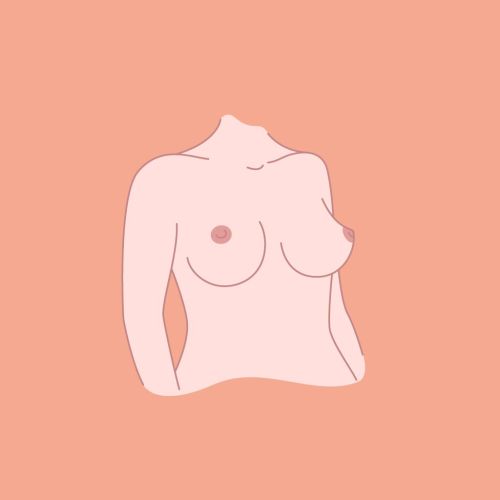
Tubular (or Constricted)
Loose tissue with nipples pointing downward, often longer and drooping.
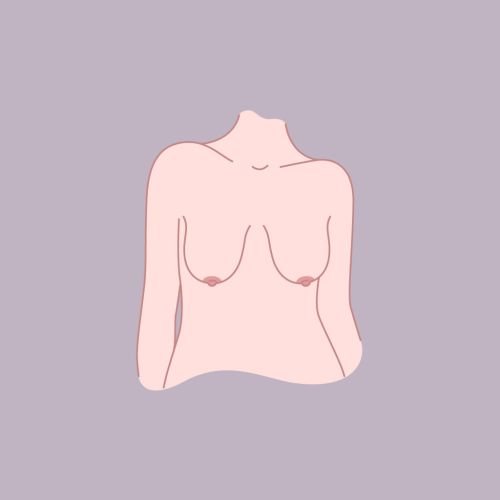
East-West Breast(or Wide-Set)
Widely spaced, cups deviate from the center, nipples pointing in opposite directions.
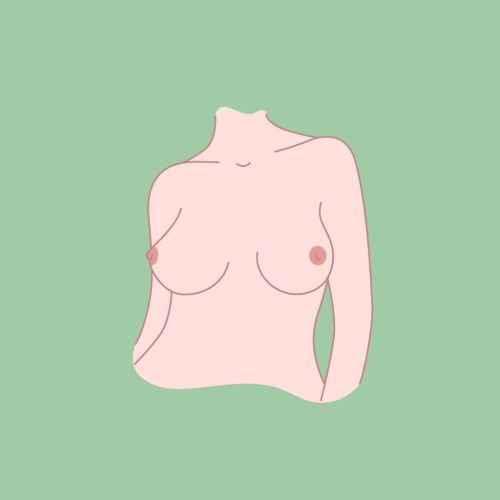
Round Breast
Full at the top and bottom simultaneously, often requiring no additional support.
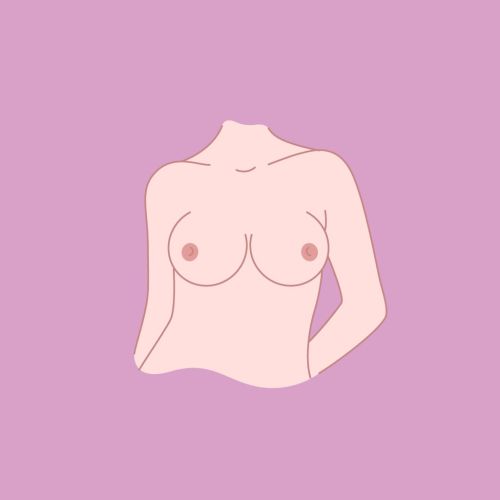
Side-Set
Resembles the east-west form but with a fuller shape and forward-facing nipples.
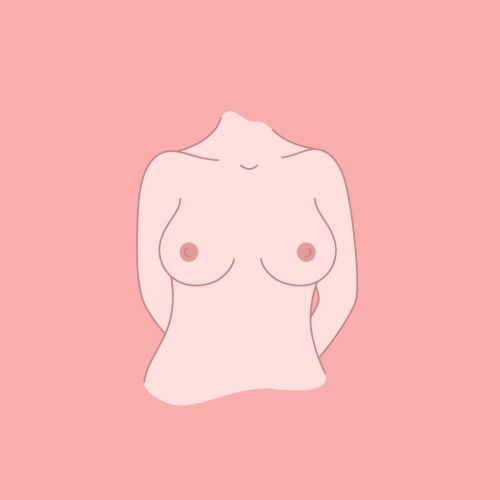
Teardrop (or Pear-Shaped)
Similar to the bell-shaped breast but rounder and less full at the top.
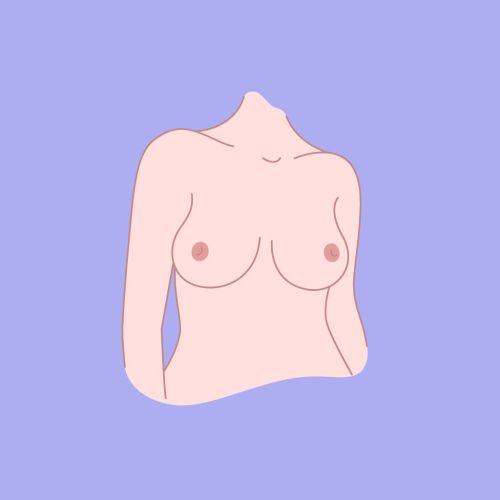
Close-Set Breast
Either not separated or has a small gap between the cups.
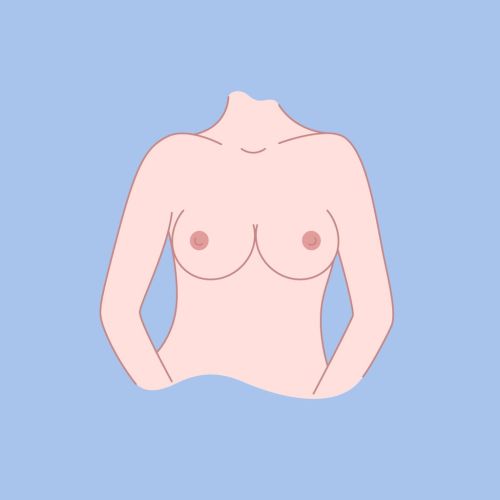
Unusual Breast Shapes
Various natural breast shapes, from triangular to funnel-shaped, are not considered congenital deformities but variations of normal anatomy.
Types of Female Nipples
Just like breast shape, nipples contribute to the diversity of the female bust's anatomy. They can vary in size, shape, and color, adding even more individuality to the breasts. Nipple types can be classified as follows:
- Standard Nipples: The most common type, characterized by a small size and being at rest within the areola.
- Inverted Nipples: Tucked inward and only becoming noticeable during stimulation or arousal.
- Everted Nipples: Conversely, protrude forward and are visible at rest and during arousal.
- Varicose Nipples: Characterized by visible veins on the surface of the nipple and areola.
- Hypertrophied Nipples: Can be larger and stand out even in a resting state.
This diverse anatomy, both of the breasts and nipples, is part of the natural diversity of the female body.
Factors Influencing Breast Shape
Numerous factors influence the shape and size of breasts:
- Racial background.
- Genetics.
- Individual characteristics.
- Weight changes.
- Pregnancy.
- Breastfeeding.
- Lactation.
- Exercise and physical activity.
- Breast diseases.
- Aging.
Understanding these factors helps women assess and embrace the uniqueness of their breasts, choose appropriate lingerie, and, if necessary, make decisions about surgical procedures. Diversity in breast shapes is normal, and there is no "ideal" shape. Each breast is unique and deserves attention tailored to individual needs and preferences.
Anatomy of the nipple and breast ducts (https://pmc.ncbi.nlm.nih.gov/articles/PMC4716863/), Gland Surg. 2016 Feb;5(1):32–36. doi: 10.3978/j.issn.2227-684X.2015.05.10. Accessed 4 Jan 2025.
Factors influencing breast changes after pregnancy (https://pubmed.ncbi.nlm.nih.gov/23022745/), Eur J Cancer Prev. 2013 May;22(3):259-61. doi: 10.1097/CEJ.0b013e328359cb81. Accessed 4 Jan 2025.
Breast development and anatomy (https://pubmed.ncbi.nlm.nih.gov/21278507/), Clin Obstet Gynecol. 2011 Mar;54(1):91-5. doi: 10.1097/GRF.0b013e318207ffe9. Accessed 4 Jan 2025.
Functional anatomy and physiology of the female breast (https://pubmed.ncbi.nlm.nih.gov/7816404/), Obstet Gynecol Clin North Am. 1994 Sep;21(3):433-44. Accessed 4 Jan 2025. Accessed 4 Jan 2025.











.svg)
.svg)
